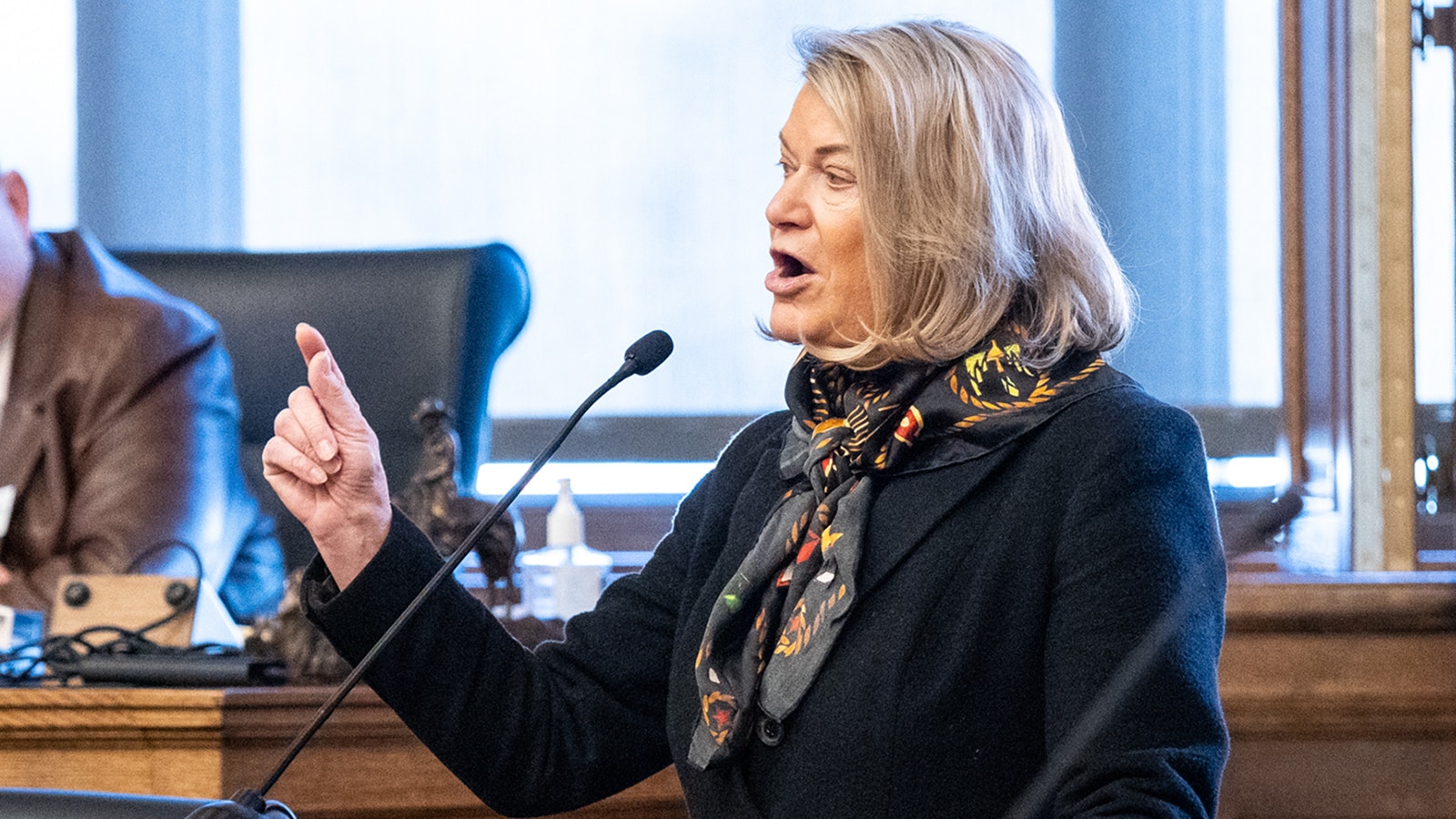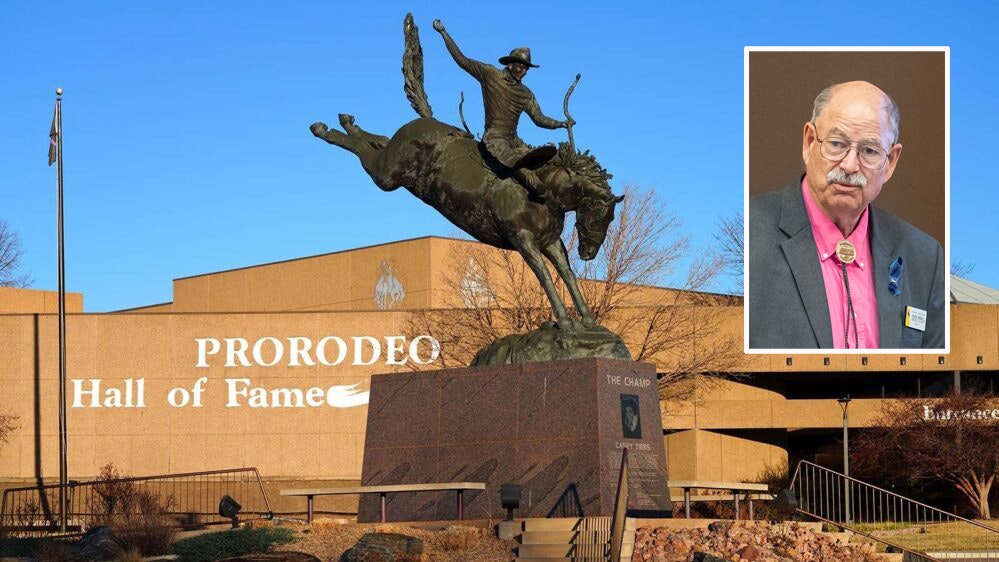WASHINGTON, D.C. — When Cynthia Lummis served as Wyoming’s lone U.S. House representative, Barack Obama was president for all eight years of her tenure.
Then the Wyoming Republican stepped away from politics during Donald Trump’s first term in the White House.
In 2020, she won one of the state’s two U.S. Senate seats — only to see the first four years of her term run concurrently with Joe Biden’s administration.
Control of the House and Senate has swung back and forth during her time in Washington, but with a Democrat as president for all 12 of her years in the nation’s capital, Lummis often found herself trudging uphill.
Not anymore.
Thanks to the 2024 elections, Lummis and her conservative colleagues have gone on offense, emboldened by Trump’s victory and Republican majorities on both sides of Capitol Hill.
Nowhere does their empowerment figure to be more consequential than on energy policy, and Lummis plays an important role in this area.
As chair of the Senate Western Caucus, which consists of 29 Republican senators from 15 states west of the Mississippi River, Lummis has emerged as a leading voice in support of Trump’s plans for ramped-up extraction of oil, gas, coal and other minerals.
“One of the things that’s really exciting about being involved in the Western Caucus right now is that our interests are aligned with the interests of the new Trump administration,” Lummis told Cowboy State Daily in an interview at her Capitol Hill office. “It’s a whole new opportunity to work with the executive branch as opposed to working against them.”
Some of the states represented in the caucus — Wyoming, Utah, Idaho, Montana and Alaska — contain enormous swaths of federal land where leases are awarded to energy companies. Some other states represented have little public lands but are major oil producers nonetheless — Texas, Louisiana and Oklahoma among them.
Lummis endorses a balanced approach to public lands management, ensuring that livestock grazing and recreational opportunities are protected even as energy production expands. Further, she advocates logging as a conservation tool, saying timber harvesting is key to healthy forests and wildfire prevention. Economic development initiatives, such as rural broadband access, form another cornerstone of the caucus.
Powerful Senators
Unlike committees, Senate caucuses have no formal role in the lawmaking process. But they can still be influential, shaping and pushing legislation that unites members of Congress on issues of shared concern.
Much of their effectiveness depends on their makeup — and the Senate Western Caucus is stacked with key lawmakers.
They include:
• Majority Leader John Thune of South Dakota, the Senate’s top-ranking Republican
• Majority Whip John Barrasso, Lummis’s Wyoming colleague, who is the second-ranking GOP senator
• Energy and Natural Resources Committee Chairman Mike Lee of Utah
• Agriculture, Nutrition and Forestry Committee Chairman John Boozman of Arkansas
• Finance Committee Chairman Mike Crapo of Idaho
• Commerce, Science and Transportation Committee Chairman Ted Cruz of Texas
Further, Lummis and Barrasso belong to committees central to the caucus’s mission. She serves on Environment and Public Works, and he is a member of Energy and Natural Resources.
Permitting, Grizzly Bears
Trump and his administration can make policy by themselves to a large degree. But Lummis said there is much for her caucus to work on legislatively. The group has a House counterpart, with members including Rep. Harriet Hageman, R-Wyoming, belonging to that chamber’s western caucus.
Trump has issued a torrent of executive orders since taking office a few weeks ago, including some in keeping with his goal of U.S. energy dominance. In addition to legislation complementing those orders, Lummis said, the enactment of laws to the same effect as those orders could help preserve the underlying policies in the long term.
That’s because, unlike orders, laws couldn’t be reversed unilaterally by a future president, she said.
The extent to which the courts might find Trump’s executive orders go too far remains to be seen. As for legislation, some measures could require help from Democrats to pass, depending on the procedures Republicans choose to employ.
Lummis said a major goal of her caucus is revamping the permitting process for energy, infrastructure and other land-development projects. Doing so would streamline what she and colleagues view as burdensome regulations championed by overzealous environmentalists and their Democratic allies.
“Permitting reform is going to be huge,” Lummis said, adding that it transcends the natural-resources industries and creates a pro-business climate generally — thus benefitting the manufacturing sector, for example.
Another priority of her caucus: Removing the grizzly bear in the Greater Yellowstone Ecosystem from the Endangered Species List and shifting management of the bear to the states. Lummis is co-sponsoring legislation with Barrasso, Hageman and others to achieve this.
Barrasso spoke publicly this week on the matter, saying the bear population is fully recovered.
“They're thriving so much that they're now doing great damage to our livestock and to our wildlife,” he said Tuesday on the Senate floor.

Wind, Solar, EVs
Trump has made no secret of his preference for fossil fuel production over wind and solar power, casting uncertainty over the future of so-called green energies.
“Wind and solar are intermittent power,” Lummis said. “The Western Caucus is more concentrated on baseload power, so we know that we have a steady and redundant source of reliable baseload power.”
Lummis added there should be no tax incentives for the renewable sources.
”The Western Caucus does not take an anti-solar or anti-wind approach. But we think it should stand on its own two feet,” she said. “It’s time that the technology be at a point where it can cash-flow without taxpayer subsidies.”
She added she has concerns over the long-term degradation of land from industrial-scale solar farms, many of which operate under federal leases.
“Those leases are usually around 35 years, because that is the economic life of solar panels,” she said. “I’m concerned if those leases expire in 35 years, and [the solar panels] are removed, are we going to have thousands of acres of dust-bowl situations to remediate?
“And so that’s something that we may want to explore as a western caucus,” she continued, adding that the panels might harm native grasses by depriving them of sun and rain.
“Certainly, the propagation of noxious weeds is within our purview,” she said. “And [solar farms] would seem to be an ideal environment for the growth of noxious weeds.”
Similarly, she criticized policies designed to advance production of electric vehicles, or EVs.
“The EV mandates are something we oppose, because it’s so impractical on mountain terrain, in cold areas, in truck traffic” she said. “That’s something we have taken a stand on.”
Local Input
The policy challenges facing the West are not always easy to solve, especially balancing energy, agricultural and recreational uses on federal lands, according to Lummis.
Even within those broad categories there are competing interests. Recreational uses are numerous and sometimes at odds with each other, she said, citing horseback riding and dirt biking.
But local input helps reconcile those matters, she said. One of her core beliefs is that the people who live in the rural West — not D.C. — should be guiding the decisions about the federal lands there.
“The people who are using the resources are right there, in the states. And they can weigh in, in ways that separate incompatible land uses and yet provide opportunities for multiple use,” she said. “You don’t get that when you’re trying to manage land from Washington, D.C., because you don’t know the terrain, you don’t know where the creeks are, you don’t know the climate.”
That sentiment — emphasizing local input or local control — is commonly echoed by her western-state colleagues. It is often voiced in the context of air and water regulations, as well as presidential designations of national monuments that lock up vast land areas from development.
Surprise Guest
For many years, Republicans in the West have felt largely ignored on federal environmental policy, something that has changed under Trump. Yet even during those years when a Democrat occupied the White House, Lummis has enjoyed moments of levity.
She recalled one such occasion last August in northwest Wyoming. Lummis and other caucus members were attending a public-lands tour and policy discussion in and around Jackson.
One morning there was suddenly buzz about a mystery guest set to appear after lunch. Suspense gripped the room.
“Everybody’s speculating: Who’s going to be the special guest?” Lummis said. “Is the secretary of the Interior coming? … And so, the momentum was building.”
The surprise visitor turned out to be Smokey Bear. The furry forest ranger known for his wildfire-prevention message was celebrating his 80th birthday.
“It was so much fun — everybody was like little kids,” Lummis recounted. “They all wanted their pictures taken with Smokey Bear.
“So, in addition to being a policy-heavy caucus, we celebrate the Great American West every chance we get.”
Sean Barry can be reached at sean@cowboystatedaily.com.





